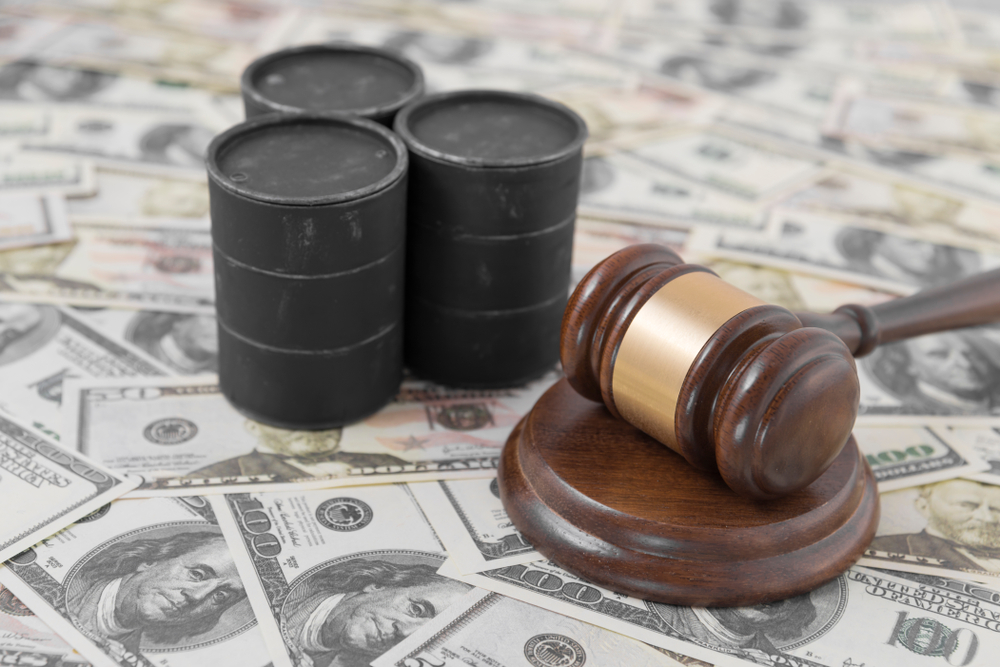In an opinion dated August 17, 2022, the 3rd Circuit Court of Appeals upheld federal district court rulings in Delaware and New Jersey that state courts are the proper venue for two climate change lawsuits brought against big oil companies.
Two different lawsuits, one filed by the City of Hoboken and the other by the State of Delaware, against several oil giant companies allege the companies made climate change worse by “produc[ing], marketing, and [selling] fossil fuels.” These claims are state tort claims, which are acts or omissions that cause injury or harm to another and amount to civil wrongs for which courts impose liability.
Defendants in the cases include Chevron Corp., Exxon Mobil Corp., Shell PLC, BP PLC, Conoco Phillips Co., Phillips 66 Co., the American Petroleum Institute, XTO Energy Inc., Marathon Oil Corp., Hess Corp., and Murphy Oil Corp.
The lawsuits seek to hold the companies accountable for costly climate change damages due to their alleged role in deceiving the public about the impact fossil fuels have on the environment.
The defendants argued that the lawsuits’ broad focus on “global climate change demand[ed] resolution by a federal court under federal law,” according to the 3rd Circuit’s opinion. The oil companies’ arguments for changing to a federal venue were:
- The tort claims arose under federal law because:
- They were inherently federal, not state, claims.
- They raised substantive federal issues.
- The suits related to producing oil on the Outer Continental Shelf.
- The oil companies were acting under federal officers.
One of the primary reasons defendants prefer federal courts to state courts is the belief that federal judges are less likely to be beholden to special interests or political parties than elected state judges. Another common belief is that federal judges are more capable of handling complex cases.
The 3rd Circuit panel included Judges Theodore McKee, Felipe Restrepo, and Stephanos Bibas, with Bibas writing the opinion. The 3rd Circuit rejected the arguments for change of venue for these reasons:
- These two lawsuits are not inherently federal and don’t raise substantial federal issues that belong in federal court.
- Oil production on the Outer Continental Shelf is too many steps removed from the burning of fuels that causes climate change.
- Delaware and Hoboken are not suing over actions that the companies were directed to take by federal officers.
Federal cases are limited to claims alleging violations of the Constitution, federal statutes, treaties, admiralty, certain parties, or federal common law.
The Delaware and Hoboken suits allege damages of nuisance, trespass, negligence (including negligent failure to warn), and misrepresentation, plus consumer-fraud violations—all of which are state torts.
“If plaintiffs say their claims are state-law claims, we almost always credit that,” Bibas wrote. “That is because plaintiffs are ‘the master[s] of the[ir] claim[s].’ They may ‘avoid federal jurisdiction by exclusive reliance on state law.’ After all, they choose to sue, so they choose why.”
Occasionally, state law claims are recharacterized as federal but only when federal law completely preempts state law.
“But complete preemption is rare,” Bibas explained. “Federal law completely preempts state law only when there is (1) a federal statute that (2) authorizes federal claims ‘vindicating the same interest as the state claim.’ Only statutes that check both boxes can transform state-law claims into federal ones.”
This two-part test is the only basis for recharacterizing a state law claim as a federal claim removable to federal court.
“Our federal system trusts state courts to hear most cases—even big, important ones that raise federal defenses. Plaintiffs choose which claims to file, in which court, and under which law. Defendants may prefer federal court, but they may not remove their cases to federal court unless federal laws let them. Here, they do not. … Climate change is an important problem with national and global implications. But federal courts cannot hear cases just because they are important,” the opinion concluded.
Attorneys general in six states and the District of Columbia, along with 20 city and county governments, have filed climate accountability lawsuits since 2017 against major oil companies, reports the Center for Climate Integrity (CCI).
“Earlier this year, the U.S. Courts of Appeals for the Tenth Circuit, Fourth Circuit, Ninth Circuit, and First Circuit rejected the oil defendants’ arguments for federal jurisdiction in climate accountability lawsuits brought by communities in Colorado, Maryland, and California, and the State of Rhode Island, respectively,” states the CCI article. “At least ten federal district courts have similarly ruled that climate accountability lawsuits filed in state court belong in state court — ‘a batting average of .000’ for the fossil fuel industry, in the words of one judge.”
It seems clear that climate accountability cases will not gain traction in federal courts, particularly when plaintiffs’ claims of injury are based in state tort laws.

